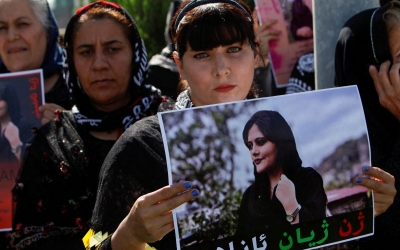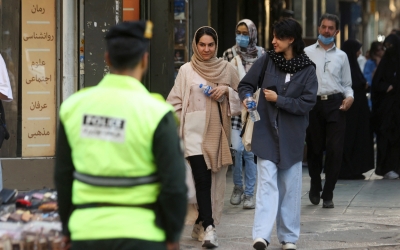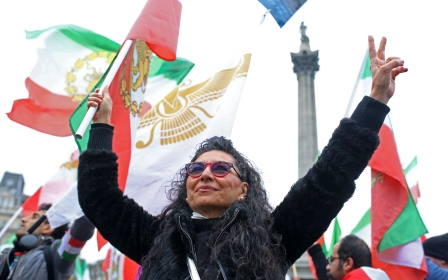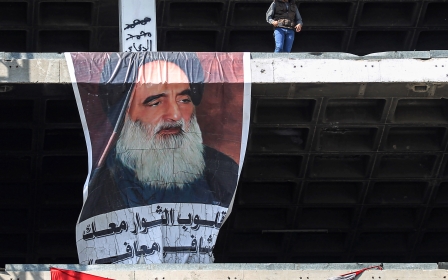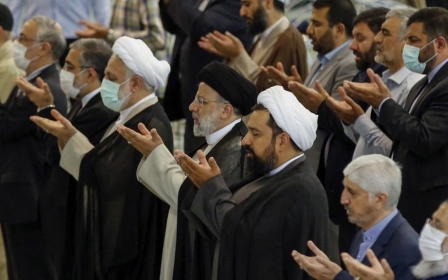Iran: How new grand ayatollah is upsetting the establishment
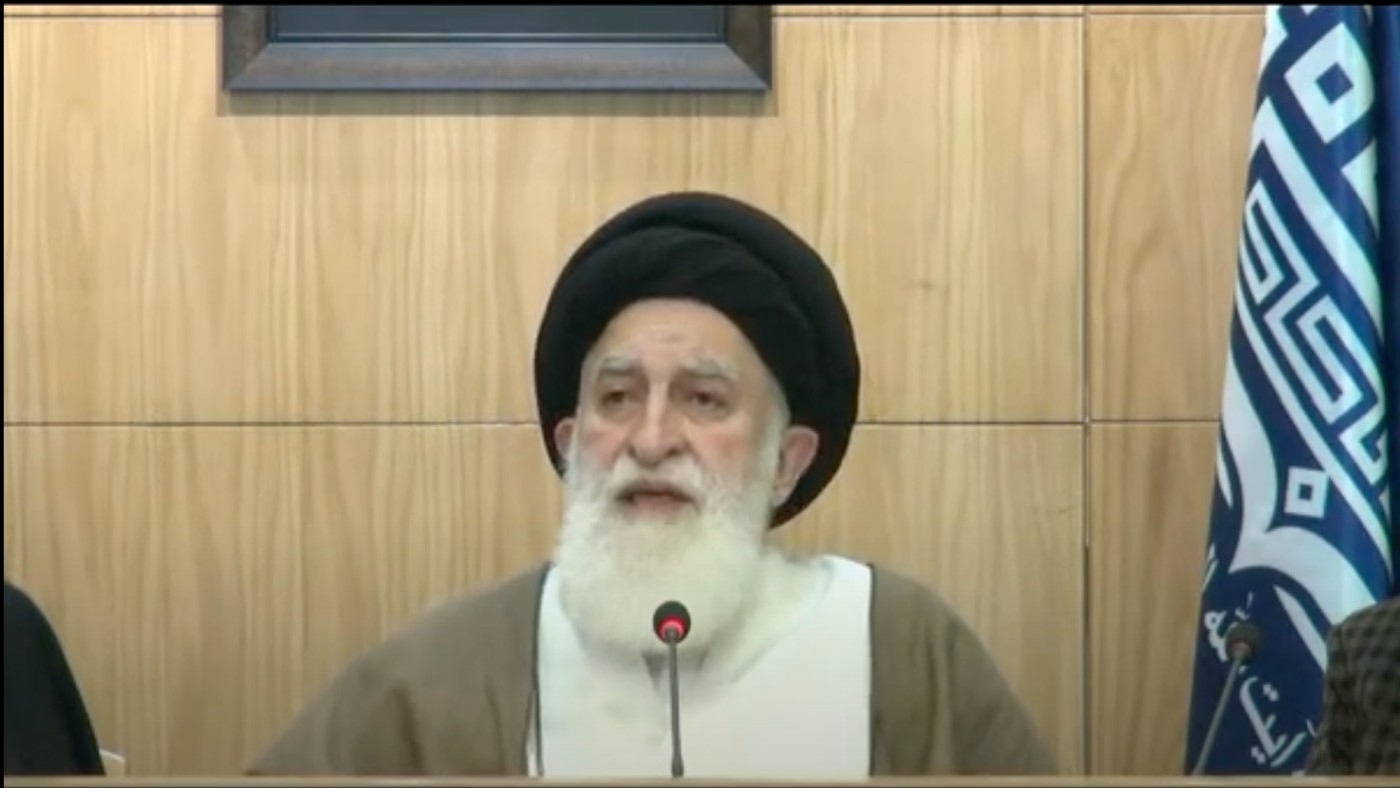
The Iranian establishment has a problem: the emergence of a new grand ayatollah whose ideas have sparked both anger and curiosity, challenging the government in Tehran and offering support to the Mahsa Amini protest movement.
Seyyed Javad Alavi Boroujerdi, a 72-year-old cleric, is the grandson of the revered Shia leader Hosseini Boroujerdi, who played a pivotal role in the revival of the Qom Seminary.
Today, his grandson stands as a powerful force, a self-proclaimed grand ayatollah seeking to redefine the "independent" role of the seminary and clergy in the eyes of a critical Iranian public.
Drawing from the legacy of his grandfather, Ayatollah Seyyed Javad Alavi Boroujerdi is seeking to put a new face on the seminary and clergy, engaging with the Iranian people in a way few grand ayatollahs have dared to.
At a time when dissatisfaction with the seminary is widespread among Iranians because of its support for the Islamic Republic, his fresh perspective has garnered significant attention and support.
In Iran, the title of "grand ayatollah" is reserved for those who have attained the esteemed status of a marja in the Shia Islamic tradition. Officially, Iran has just eight marjas, but unofficially the number is higher.
Boroujerdi's status is unofficial and in order for that to change, he would have to be approved by a state he is increasingly at odds with.
Grand ayatollahs, who have daily contact with the public, are empowered to issue edicts (or fatwas), with their authority derived from their followers' recognition of these edicts. Followers don't just adhere to the leadership of the grand ayatollahs: they dutifully contribute religious taxes as a mark of their devotion.
Basic rights for all
Particularly controversial has been Boroujerdi's support for the Bahai faith, which has an estimated 300,000 followers in Iran.
The Tehran government and clerics closely associated with it have consistently adopted policies that result in the imprisonment of Bahai followers and the stripping away of their rights – including the right to study and other basic freedoms.
'I believe the Islamic Republic is fully prepared to face the consequences of taking action against Boroujerdi'
- Senior cleric
On 6 June, Boroujerdi addressed this issue, saying that the rights of Bahais "must be preserved" in the face of opposition.
Slamming the Islamic Republic's approach to the minority, he said: "Bahais believe in something. We have people in Iran who do not believe in anything. So we should kill them?"
Not everyone shares this stance which, in these deeply conservative times, is deemed progressive.
Responding to Boroujerdi, Nasser Makarem Shirazi, a grand ayatollah close to the Islamic Republic, branded the Bahais a political group manipulated by foreign powers and advised caution in granting them official status. He even urged Boroujerdi to correct his statements.
Ayatollah Najmuddin Tabasi, another senior cleric in the Qom Seminary, added to the criticism: "These kinds of remarks are not good. They lead to secularism."
From Cyrus the Great to Mahsa Amini
One of the striking aspects of Boroujerdi's vision is his focus on the history of Iran before Islam, which is counter to the administration and those clerics close to it, who attempt to ignore ancient Persian civilisation.
Boroujerdi highlights the significance of the Cyrus cylinder, a sixth century BCE document recognised by the United Nations, which notes that the texts "indicate that everyone is entitled to freedom and choice and that all individuals should respect one another".
"I praise the Cyrus cylinder, while some people believe that [there is nothing valuable before Islam]. This is not right," Boroujerdi has said.
Cyrus II of Persia (c. 600-530 BCE), commonly known as Cyrus the Great, founded the Achaemenid Empire, the First Persian Empire. Excavated at Babylon in 1879, the cylinder was inscribed in Babylonian cuneiform on Cyrus's orders. It promotes human rights, tolerance, courage and the respect of minorities.
Beyond human rights, Boroujerdi, unlike many of his peers, rejects the notion of an "Islamic economy", emphasising that Islam does not prescribe specific economic principles.
"We have been working for 43 years, we have done everything by trial and error. Matters should be left to experts and it is not even necessary for an expert to be religious," he has said of the government's approach to the economy.
When it comes to the controversy over whether it should be mandatory to wear the hijab, the cleric has said that true faith should not be defined solely by outward appearance. Boroujerdi has instead encouraged a focus on genuine belief and action, urging society to avoid excessive disputes that strain the fabric of religious unity.
When 22-year old Mahsa Amini died in the custody of the morality police for allegedly not observing regulations concerning the hijab, Boroujerdi said: "She was the daughter of us all and what happened to our daughter was very bitter for us all."
Protests have rocked Iran since Amini's death, and the grand ayatollah has been clear in his response to them. Addressing the Islamic Republic, Boroujerdi said of the protesters: "These people here have their say and they don't agree with what you are doing. Their voice should be heard somewhere. Leave the newspapers free to write it. The press should be free. Different views should be heard on state TV."
Hardline media outlets like Rasa News have attacked the cleric for his role in "fuelling the protests", but Boroujerdi has remained unbowed, calling for imprisoned protesters to be treated "with mercy".
'We will take down your banner'
As his popularity has grown, Iranian officials have openly opposed Boroujerdi's emergence as a new grand ayatollah.
Ayatollah Mohammad Yazdi, then secretary of the Society of Seminary Teachers of Qom, said in relation to Boroujerdi in 2019: "If some individuals publicly declare themselves as marja one day, I will personally intervene and make an official announcement against it, as long as I am alive."
Yazdi emphasised that being the grandson of a marja does not automatically qualify one as a religious authority, adding: "If such a person attempts to present themselves as a marja, we will take down any banners or declarations associated with it."
The Society of Seminary Teachers of Qom, which is controlled by Supreme Leader Ayatollah Ali Khamenei, is tasked by the Islamic Republic to declare marjas.
A middle-ranking Qom-based cleric, who spoke to MEE on condition of anonymity, said that: "In Islam, marja are not elected or chosen by a government or state-run institution."
Boroujedi, he said, "has many advantages, such as his independence and his support for people's rights, while many of the grand ayatollahs are sadly either silent or acting in collusion with whatever the government does. This is damaging Islam and the seminary in Iran".
A senior cleric, who teaches at the seminary, told MEE that "Boroujerdi possesses an array of qualifications that contribute to his potential as a marja".
"Among these attributes is his esteemed lineage, as he carries the credit and reputation of his highly respected grandfather," he added. "Additionally, his influential presence, combined with substantial financial resources, further strengthens his candidacy."
The cleric added a note of caution, warning of a battle to come: "I believe the Islamic Republic is fully prepared to face the consequences of taking action against Boroujerdi and silencing him if he continues with his current approach, manages to sustain public attention and gains recognition as a marja among the people."
This article is available in French on Middle East Eye French edition.
Middle East Eye propose une couverture et une analyse indépendantes et incomparables du Moyen-Orient, de l’Afrique du Nord et d’autres régions du monde. Pour en savoir plus sur la reprise de ce contenu et les frais qui s’appliquent, veuillez remplir ce formulaire [en anglais]. Pour en savoir plus sur MEE, cliquez ici [en anglais].


